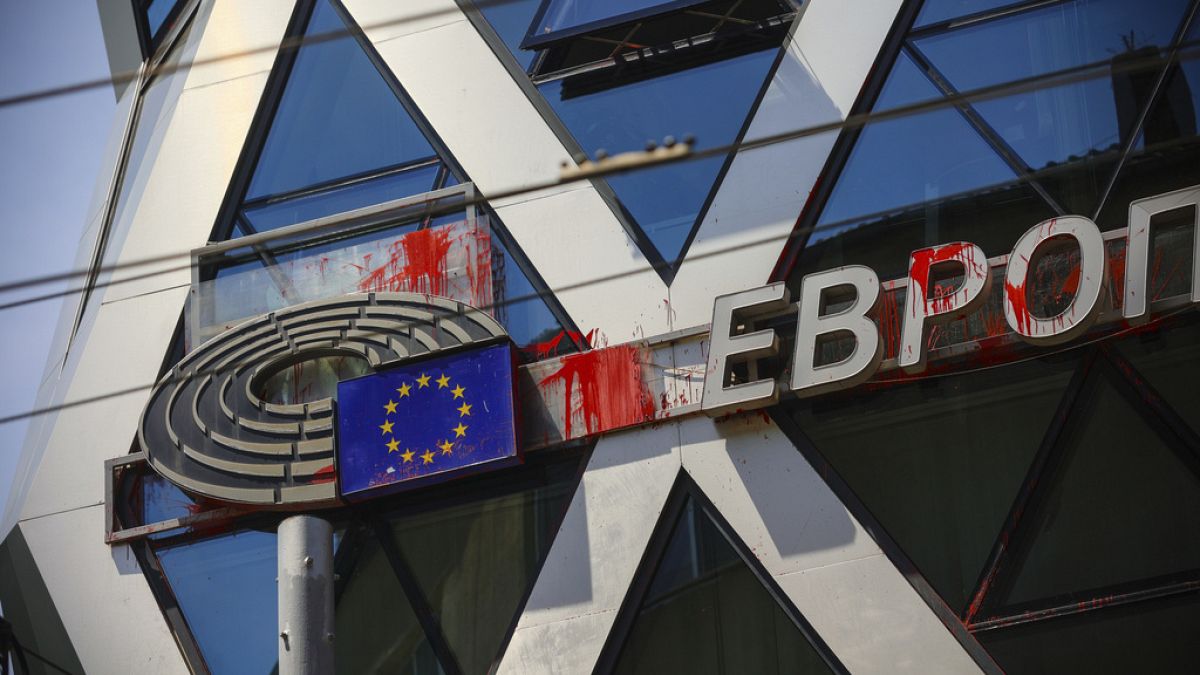Small business owners in Bulgaria are facing the upcoming currency change from the lev to the euro with concern, as many fear this might be yet another crisis they have to confront.
The concerns come as the Balkan country of 6.4 million people is to make the switch from its national currency, the lev, to the euro on 1 January 2026.
In the southern Bulgarian city, the Terziev family opened its first organic store more than 10 years ago. With their small business already having weathered several crises, now it faces a new challenge—the transition from the lev to the euro.
Owner of the organic store, Nikolay Terziev, says he has begun to label products with the new currency, but with lots of unease.
“No shop owner is an economist,” he says. “What worries us is the information we’re getting from close acquaintances in countries that have already adopted the euro— yes, economic indicators improve, but the population becomes poorer. But more big businesses profit,” Terziev explained.
The price of goods is rising
Bulgaria is unusual in that it pegged its currency, the lev, to the euro right from the beginning of monetary union in 1999, even before it joined the European Union in 2007. Bulgaria also has very low levels of debt, only 24.1% of annual economic output.
That is well below the 60% level set in the economic criteria for eurozone membership. The last step was getting inflation below the benchmark of 2.8%, or no more than 1.5% higher than the average of the three lowest eurozone members.
But in the past month, there has been a noticeable rise in supplier prices, bringing about the fear of bankruptcy.
“Converting Bulgaria to the euro is not our biggest problem. Our big problem is what’s causing the price increases. It’s simple—when prices rise and people’s purchasing power is low, which is the case in Bulgaria, people buy less, and you sell less,” says Terziev.
Both currencies will be in circulation for one month
Bulgaria is unusual in that it pegged its currency, the lev, to the euro right from the beginning of monetary union in 1999, even before it joined the European Union in 2007. Bulgaria also has very low levels of debt, only 24.1% of annual economic output.
The biggest concerns are about January next year, when both currencies will be in circulation for one month.
“We know very well that chaos will begin in early January. From January, we’ll have to give change in euros; we’ll have to calculate in euro cents. We’ll constantly need to exchange leva for euros and go to banks. We’ll have to work and exchange money at the same time. Physically, I don’t know how we’ll manage that,” says Terziev.
50% of Bulgarians were opposed and 43% in favour
But not all of Terziev’s organic store customers don’t view shopping in euros; the most recent Eurobarometer poll carried out by the EU showed that 50% of Bulgarians were opposed and 43% in favour.
Some of their reasons include fears of inflation, distrust of official institutions in a country that has had seven governments in four years, and widespread misinformation on social media. In Haskovo, many residents say they are not rushing to exchange their money.
“No, I don’t have much to exchange,” said one customer. “Absurd! For now, I choose to stay optimistic and believe it won’t be necessary,” said another.
Although many fear the change, others have expressed trust. “I’m very happy that Bulgaria will adopt the euro. I hope it helps the country economically. I’m not worried,” says one customer, Monika Boyuklieva.
“I don’t think inflation is caused by the euro—it’s due to other factors. I hope everything goes smoothly and that there won’t be any major price increases,” adds Boyuklieva.
Last month, European Union officials gave the green light for Bulgaria to become the 21st member of the euro currency union, a key EU project aimed at deepening the ties between member countries.
Starting 8 August, all retail prices must be displayed in both currencies. All banks must exchange lev until the end of 2026.
The Bulgarian National Bank will exchange banknotes and coins from lev to euro for an unlimited period.
Read the full article here


